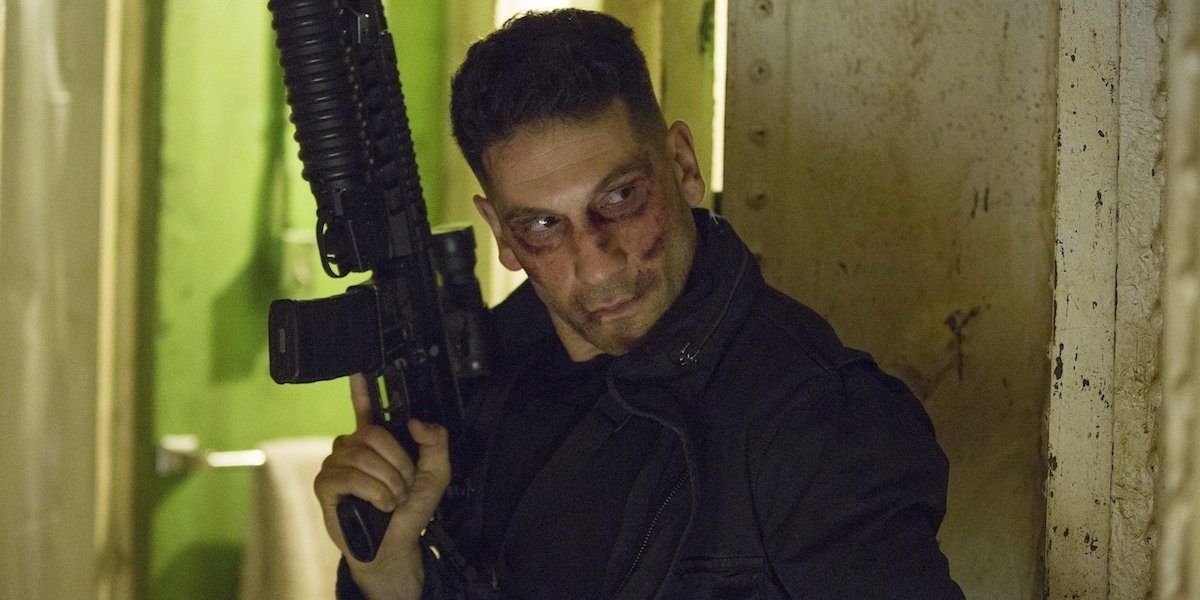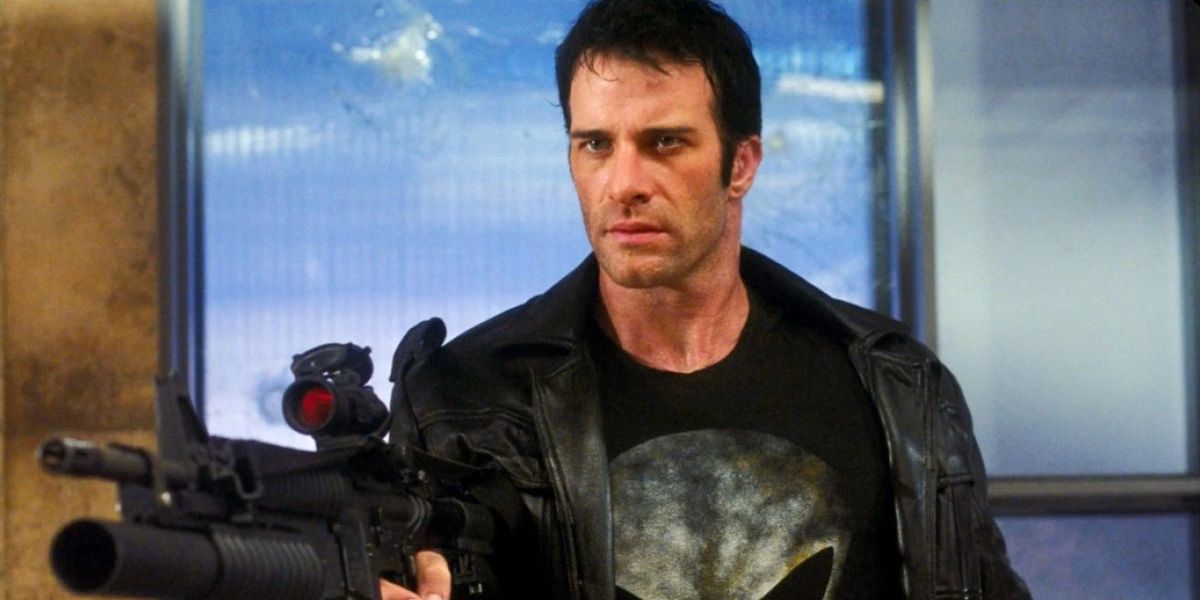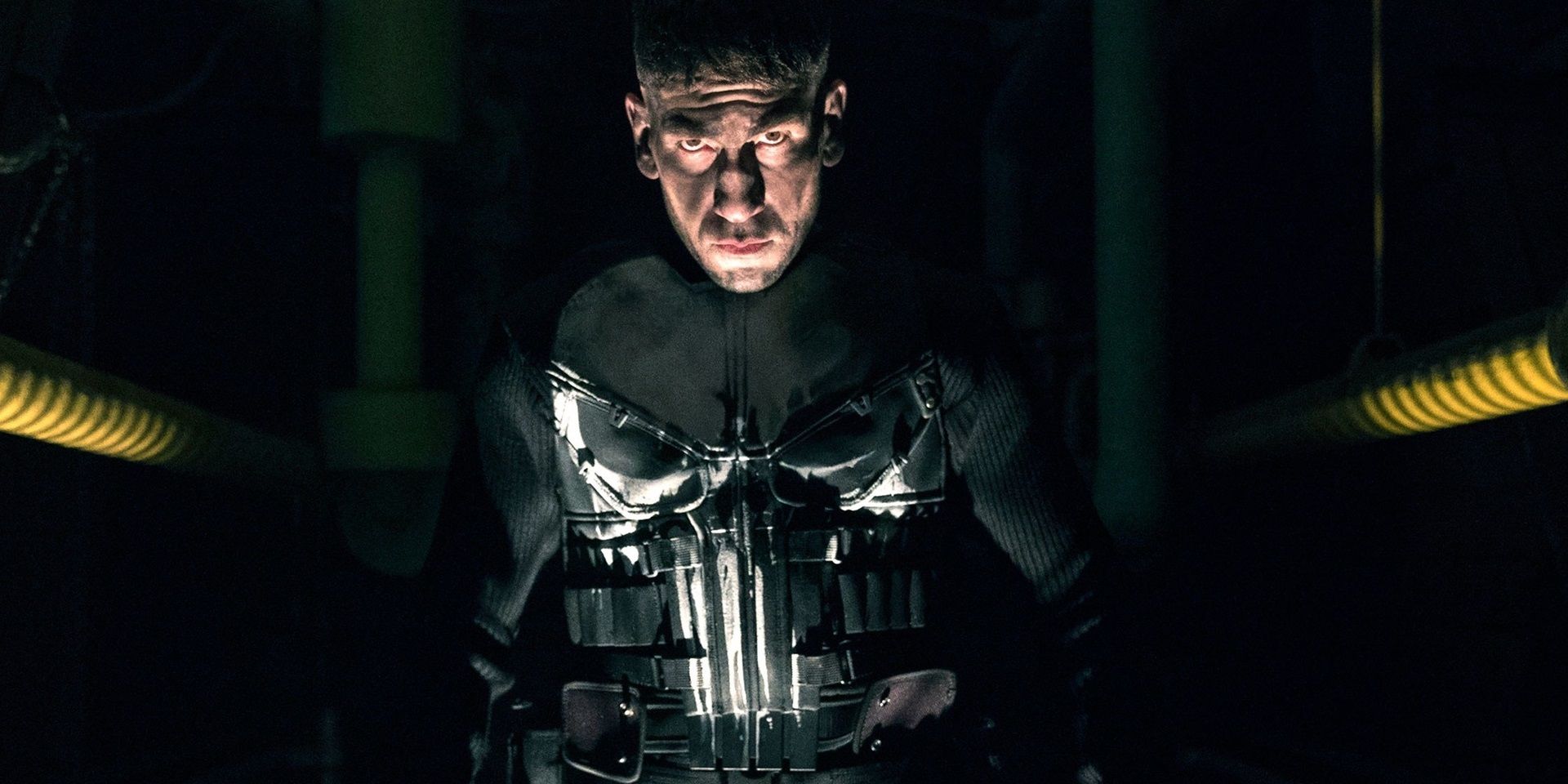
The Marvel Cinematic Universe's take on The Punisher was controversial, different in many ways from the comic book origins, and wildly varied from previous and future on-screen appearances. Though often overlooked, season 1 of The Punisher imbued the character with new depth by centering his narrative about a real-world issue.
The Punisher season 1 released in 2017, created by Steve Lightfoot, best known for writing and production work on NBC's hit series Hannibal. The eponymous anti-hero was portrayed by Jon Bernthal, the fourth actor to don the iconic skull. The character was introduced to the MCU with a bang as a secondary character in the second season of Daredevil, where he was immediately embraced as a fan favorite.
RELATED: Fan Art Imagines A Stark-Suited Punisher In Marvel's Armor Wars
Frank Castle AKA the Punisher was introduced in 1974, created by Gerry Conway and heavily inspired by Don Pendleton's The Executioner series. In his first appearance, Amazing Spider-Man #129, he is a minor antagonist, hired by Jackal to assassinate Spider-Man. After a couple of skirmishes, Spidey convinces Castle he's been tricked, leading Castle to swear vengeance on Jackal. He was instantly popular and developed quickly into a full-fledged anti-hero.

Castle is a Marine Corps veteran who dedicated his life to vigilante justice against crime after losing his wife and children to mafia assassins. He is somewhat unique amongst Marvel protagonists for his wholehearted embrace of killing, typically a hard line which most superheroes will not cross. His storylines typically center around violent onslaughts against criminal gangs and spirited debates regarding methods with other vigilantes.
The Punisher has been adapted to film 3 times, to varying levels of success. Each starred a different leading man in the title role, Dolph Lundgren in 1989, Thomas Jane in 2004 and Ray Stevenson in 2008. The 89' film is barely related to the comic which shares its name, Lundgren's performance is utterly indistinguishable from a thousand other 80's tough guys. The 2004 offering is a substantial improvement, clearly made by people with great love for the source material, Thomas Jane included.
The most recent film adaptation, subtitled War Zone and directed by indie darling Lexi Alexander, was a love letter to B movies of the '80s packed with frame-perfect recreations of comic book blood and gore. These films are fun in their own way, but they are each let down largely by the writing. Once the MCU came to prominence, the character's inclusion into the larger film ecosystem was inevitable.
The first season of The Punisher centers around Frank Castle, haunted by his past as he slowly destroys himself in the quest for vengeance. Castle is wracked with visions, the audience sees the same flashback sequences interrupted by increasing acts of violence as his fractured psyche descends deeper into hate and guilt. Much of the series makes reference to the horrific acts Frank did as a soldier, his actions at the command of more powerful bureaucrats haunt his dreams and bring enemies to his door.
As the series unfolds, the villains who killed the Castle family are revealed to be the higher brass of the military Frank answered to. Even after Frank is out, his commanding officers abuse him, take everything from him and render him broken from within. A crucial side plot of the first season centers around a young man, psychologically devastated upon returning from war, who takes inspiration from the Punisher to enact a ripped from the headlines terrorist attack. The season's final moments see Castle finally seeking help, in a soldier's support group. The series could not be more blatant: it's a deeply insightful piece about the horrors of war, the causes of radicalization, and most of all, the scourge of Post Traumatic Stress Disorder.

PTSD is a massive talking point, especially in the context of veterans' care, and The Punisher is an inspired choice for a story to center that issue. Castle, in every iteration, suffers from PTSD from both his military service and the tragic deaths of his family. Much of this crucial messaging is delivered by fan-favorite side character Curtis Hoyle. An essentially unrecognizable character by the same name exists in the comics, a minor villain from the late '80s, but the version is a new idea for the series. Hoyle is Castle's closest friend, a veteran who served alongside Frank and runs the aforementioned PTSD support group. Hoyle regularly speaks on the subject, in and out of the meetings. His compassion is of great aid to Frank, but lands him in danger as he tries to help his more troubled charges.
The first season of The Punisher is perhaps the most politically unnerving piece of media Marvel has produced, aspects of it can be genuinely hard to watch. Packed neatly within the narrative of Frank Castle's vengeance quest is the crushing tale of Lewis Wilson. Wilson was a US Army recruit who served in Iraq before being discharged as a direct result of PTSD. Wilson grows exponentially worse after being sent home, his attendance at Hoyle's support groups don't seem to help, and a fellow member begins to put political ideas in his head.
Wilson loses his job and alienates his father as his mental illness renders him unable to sleep indoors. He contemplates suicide, but, radicalized by his newfound political purpose, turns to terrorism. What follows is a montage of bombings eerily similar to events like Oklahoma City, then a tense hostage situation with Hoyle and finally, a suicide bombing to avoid capture. It is absolutely haunting, and anyone paying attention would see the parallels to reality. This story sitting alongside the main story is a genuinely transgressive depiction of real tragedy within an MCU series about a man who guns down criminals with a skull on his chest.
Most MCU media is light on political messaging, and most Punisher stories make violence the focus, but season 1 of The Punisher is an astonishing standout in both fields. This is partially true of many of the Marvel Netflix series: Jessica Jones has a powerful message about sexual abuse, Luke Cage tackles race, and Daredevil centers on political corruption. But these elements were integral to the characters in their comic book versions, while the new focus of The Punisher is a very clever choice by the showrunners.
Marvel doesn't always build a message into their media, and even when they do it doesn't always work out, but season 1 of The Punisher is a bold and heartrending statement that redefines a beloved character and adds new dimensions to create stronger art. Action feels better when it is about something, and bold choices like these create works that will be discussed for years beyond their release.
MORE: Spider-Man: No Way Home Can Give The Punisher A 'John Wick'-Style Cameo

